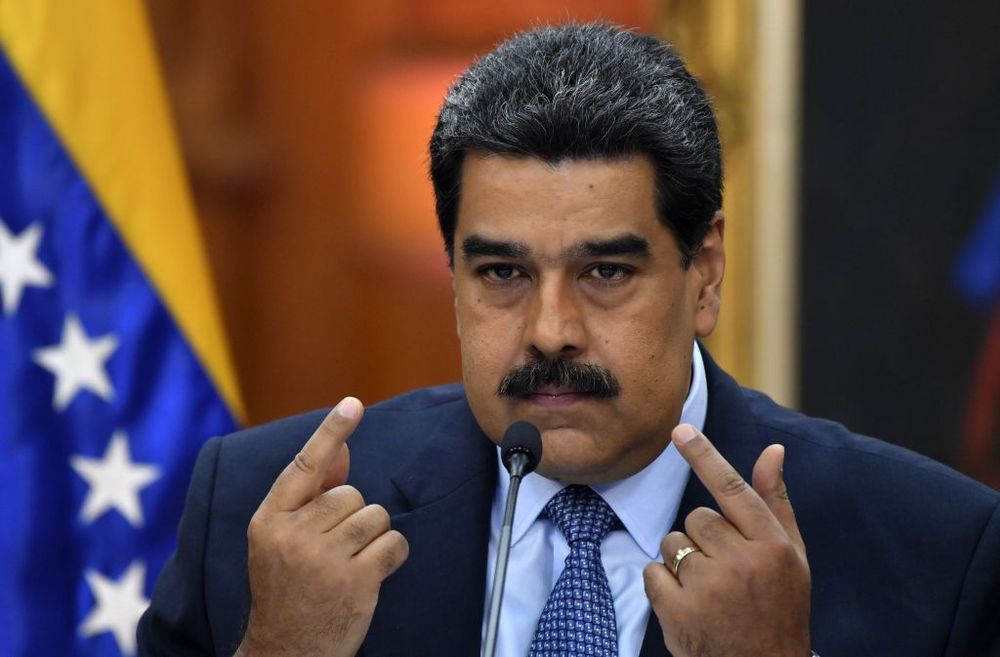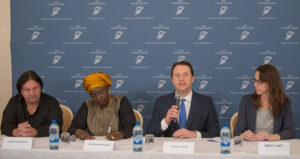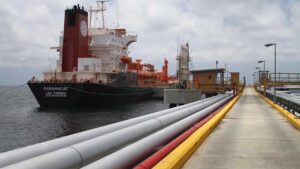
(FT, 7.Mar.2020) — There have been enough false dawns in Venezuela to deter any confident predictions but a series of developments — all energy related — suggest that 2020 could be the year when regime change might actually occur and the country could begin to resume its role at the heart of the global energy market.
The state of the country could hardly be worse. Oil production in January was 733,000 barrels a day — more than 2m b/d below the peak of almost 3m b/d reached in 2002. Oil exports, which provide 99 per cent of export earnings, fell by a third last year. Falling revenues produced the sort of poverty previously hardly imaginable in what was once one of the richest economies in the region.
In a survey published at the end of February, the World Food Programme reported that almost one in five Venezuelan households live at unacceptably low levels of food consumption.
Inflation is estimated to have been 6,567 per cent in 2019, and according to the UNHCR some 4,000 to 5,000 Venezuelans leave the country every day.
The scale of these problems may be growing but they are not new and so far they have failed to produce a change of government. A year ago the attempt by Juan Guaidó, president of the opposition-controlled National Assembly, failed despite being backed by the governments of the US, Canada, UK and other European countries.
President Nicolás Maduro remains in power with the support of the leaders of the country’s armed forces. He claimed in January that he would raise oil production to 2m b/d this year, a statement that provoked a sharp response from the US. Even tighter sanctions combined with the sharp fall in the oil price as a result of the coronavirus look likely to lead to a drop in production this year, putting intense pressure on the Maduro regime.
American sanctions have reduced export earnings but until now have not been tight enough to close down oil trade completely thanks to the involvement of companies, such as Rosneft and, until the end of last year, the state-owned China National Petroleum Corporation. Now US President Donald Trump has extended the sanctions to cover Rosneft and is expected to include its Swiss affiliate TNK Trading in the near future. In the last few days, Indian companies — including Reliance — which had been major buyers of Venezuelan crude have said that their purchases will cease.
Selling oil, even at heavily discounted prices, will become more difficult. Chevron is the last major US oil company operating in Venezuela, and so far its sanctions waiver has been repeatedly extended by the US government. But if the waiver was removed, that would be the next tightening of the screw — the company has been present in the country for most of the past 100 years.
If Mr Trump decides that the waivers will end in May, Chevron says in its absence Venezuelan supplies would be handled by Russian or Chinese companies.
However. the departure of Chevron would expose the shortage of skilled workers in PDVSA, which has seen an exodus of qualified professional staff over the past decade. Mr Maduro’s aspiration of increased production relies on the US company’s continued presence and the involvement of further Russian or Chinese groups.
Venezuela remains a strategic asset for Russia, but Rosneft, with its international reach and western minority shareholders, may be more wary of breaching US sanctions. The debts owed by Venezuela to Rosneft have largely been paid down through trade in oil, and are now just $800m from some $6.5bn of loans.
For the moment, at least China’s need for oil is reduced because of its economic problems, and in any case Chinese support for the Maduro regime has been weakening.
Beyond these factors, the greatest force for change in Venezuela will be the oil price. With a global surplus of supply, and more Opec cuts in the offing, Venezuelan oil is no longer needed in the market. Without substantial export earnings, the government in Caracas is unlikely to be able to provide the investment needed to maintain current production, let alone meet Mr Maduro’s target. Even the most authoritarian regimes cannot survive without revenue.
By Nick Butler. The writer chairs the Policy Institute at King’s College London
***

